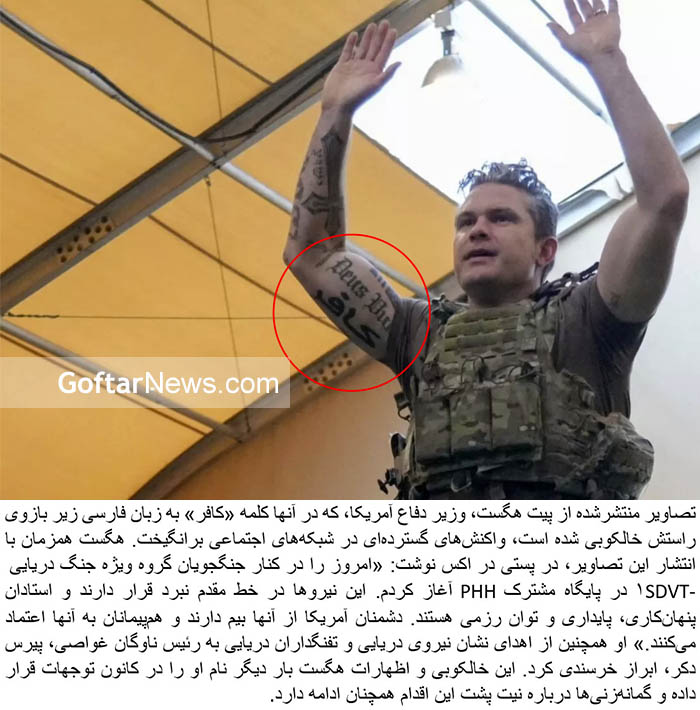The Controversy Surrounding Defense Secretary Pete Hegseth’s “Kafir” Tattoo

In a recent social media post, U.S. Defense Secretary Pete Hegseth sparked widespread controversy after revealing a tattoo that reads “كافر” (kafir) in Arabic, translating to “infidel” or “nonbeliever.” The tattoo became visible during his visit to Joint Base Pearl Harbor-Hickam in Hawaii, where photos taken of him were shared on social media platforms, particularly X (formerly known as Twitter). The backlash prompted a flurry of reactions, raising questions about the implications of such a symbol on American foreign policy towards Islam and Muslim communities.
Context: Who is Pete Hegseth?
Pete Hegseth is a prominent figure in U.S. politics. He has served as a U.S. Army National Guard officer, a veteran of the wars in Iraq and Afghanistan, and a political commentator. Hegseth identifies strongly as a Christian, and his faith plays a significant role in his personal and professional life. He has made headlines not only for his military career but also for his outspoken views on a variety of issues, most notably those relating to Islam and foreign policy.
Hegseth’s tattoo collection is extensive, with designs that reflect his religious beliefs and ideological stance. These tattoos include phrases such as “Deus Vult” (“God wills it”), which has roots in the Crusades, alongside symbols that represent his interpretation of Christianity and patriotism.
What Does the “Kafir” Tattoo Represent?
The term “kafir” is historically significant and has multiple interpretations within Islamic texts. While some view it as a straightforward term for a nonbeliever, others consider it more complex, often associating it with someone who knowingly rejects the truth of Islam. Therefore, for many Muslims, Hegseth’s tattoo could be seen as incendiary, reiterating the long-standing narrative that positions nonbelievers and their actions as adversarial to Islam.
Hegseth’s choice to tattoo “kafir” alongside other explicitly Christian symbols could be interpreted as a deliberate statement, intended to challenge the narrative surrounding American Muslims and the U.S.’s engagements in Muslim-majority regions.




